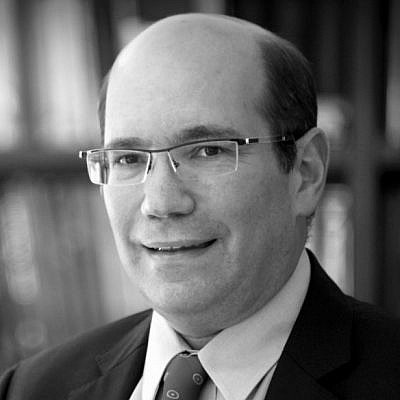
Editor’s note: This is an online exclusive piece.
Pop quiz: What do “White Christmas,” “Rudolph the Red Nosed Reindeer,” “Let It Snow,” “Silver Bells,” and “The Christmas Song” (Chestnuts Roasting on an Open Fire), all have in common? Jews wrote or popularized all of them: Irving Berlin, Johnny Marks, Sammy Cahn and Jule Styne, Jay Livingston and Ray Evans, and Mel Torme.
In the hands of a brilliant novelist like Philip Roth in “Operation Shylock,” this fact becomes Jews’ revenge on “the goyim.”
“God gave Moses the 10 Commandments,” Roth’s narrator observes, “and He gave to Irving Berlin ‘Easter Parade’ and ‘White Christmas.’ The two holidays that celebrate the divinity of Christ – the divinity that’s the very heart of the Jewish rejection of Christianity – and what does Irving Berlin do? Easter he turns into a fashion show and Christmas into a holiday about snow.”
In the hands of anti-Semites, this fact exposes “THE Jews” as Greedy Grinchsteins, who “stole” Christmas, turning this religious holiday into what the historian Daniel Boorstin called a “festival of consumption.” Blaming “THE Jews,” as if we act as one, is bigoted. Moreover, the watering down of Christmas in the West and religion in America goes far beyond the influence of one group – or a half-dozen talented song-smiths.
The story of how some Jews helped Americanize Christmas reveals three bigger phenomena: How Jews helped modernize America; How America Americanized Jews; and, ultimately, How America works – and should work.
Usually, although we chronicle individual Jewish successes in detail, “American Jewry” is painted with broad brush strokes. While every American Jewish superstar moves and shakes, American Jews collectively are treated as objects, not subjects, passively being Americanized, assimilated, wooed, seduced – even intermarriage is discussed as a force, not an individual expression of love.
Acknowledging American Jews’ creativity challenges us to retell American Jewish history with more active verbs, noting not just how American changed Jewry, but how American Jews helped America grow. It was a match made in the New World’s fields of dreams, gardens of tolerance and plains of plenty — which America’s unique political culture nurtured.
The American Jewish experience, like all immigrant experiences, was a two-way process. American Jews helped America become more diverse, open, cosmopolitan, while America helped Jews become more comfortable, confident and culturally accommodating.
But the Jews weren’t just another immigrant group. There was a particular click between American and Jewish culture. Many of the People of the Book came with skills that helped America become Facebook Nation. The Eastern European Jewish experience cultivated a wordiness and a worldliness that suited modern America. Far beyond “White Christmas,” the result was an explosion of creativity spawned by this soothing flowerbed of rights, freedoms, opportunities.
Simultaneously, America “Americanized” Jews. Most American Jews did to Judaism what the Jewish songwriters did to Christmas. They exiled God and any heavy-handedness from their cavernous suburban temples. They made the holidays user-friendly and red-white-and-blue not just blue-and-white. At many Passover seders, Martin Luther King Jr. now competes with Moses, Betty Friedan with Miriam; the holiday of Jewish national liberation has become the holiday of universal civil rights.
Amid this December Delusion, all holidays, especially Christmas and Hanukkah, have been so dumbed down and so politically corrected, that, in late December, people say “Happy Holidays.” Everyone knows this national day off celebrates Christmas, marking Jesus’ birth in the desert of Bethlehem, not Rudolph the big-nosed, er, red-nosed reindeer roasting chestnuts in snow-covered New York.
America remains a majority Christian nation. Three-quarters of the population has the right to celebrate its holidays in authentic ways in the public square. I prefer a culture of Christmas trees and Hanukkah menorahs proliferating in December, broadcasting the excitement and meaning of various Americans experiences when preserving ancient traditions. It beats a sterilized town square, with generic snowflakes abounding. That nakedness evokes the stripped-down modern, lonely Westerner; Emile Durkheim’s lost, abandoned, sufferers of “anomie.”
Instead of spreading December Delusions that we’re all the same, let’s confront our December Dilemmas. The majority should worry about how the minority feels. Minorities should enjoy watching the majority celebrate publicly and privately.
Let’s debate, yet again, how we strike that all-American balance, granting everyone equal political rights and expansive liberties. We should beorging politics that includes us all, while nurturing private spaces and public respect for Jews who want to remain Jewish (ethnically and religiously), Christians who want to remain Christian and Americans perpetuating many faiths, ethnicities, nationalities and identities. Let’s appreciate the spiritual grounding, cultural sparks and frameworks for meaning these traditions provide. They propel us beyond the generic pop culture of Hollywood, Madison Avenue and Silicon Valley that so mass produce and generalize experiences, that our personal voices, our more intimate communities, our most interesting selves, our richest traditions, aren’t banned — but simply wither away.
Recently designated one of Algemeiner’s J-100, one of the top 100 people “positively influencing Jewish life,” Gil Troy is the author of the newly-released The Zionist Ideas, an update and expansion of Arthur Hertzberg’s classic anthology The Zionist Idea, published by the Jewish Publication Society. A Distinguished Scholar of North American History at McGill University,he is the author of ten books on American History, including The Age of Clinton: America in the 1990s.























 More news and opinions than at a Shabbat dinner, right in your inbox.
More news and opinions than at a Shabbat dinner, right in your inbox.